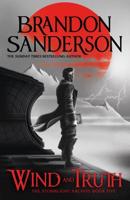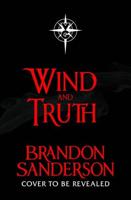Publisher's Synopsis
The boy or girl who reads to-day may know more about the real Lincoln than his own children knew. The greatest President's son, Robert Lincoln, discussing a certain incident in their life in the White House, remarked to the writer, with a smile full of meaning:
"I believe you know more about our family matters than I do!"
This is because "all the world loves a lover"-and Abraham Lincoln loved everybody. With all his brain and brawn, his real greatness was in his heart. He has been called "the Great-Heart of the White House," and there is little doubt that more people have heard about him than there are who have read of the original "Great-Heart" in "The Pilgrim's Progress."
Indeed, it is safe to say that more millions in the modern world are acquainted with the story of the rise of Abraham Lincoln from a poorly built log cabin to the highest place among "the seats of the mighty," than are familiar with the Bible story of Joseph who arose and stood next to the throne of the Pharaohs.
Nearly every year, especially since the Lincoln Centennial, 1909, something new has been added to the universal knowledge of one of the greatest, if not the greatest man who ever lived his life in the world. Not only those who "knew Lincoln," but many who only "saw him once" or shook hands with him, have been called upon to tell what they saw him do or heard him say. So hearty was his kindness toward everybody that the most casual remark of his seems to be charged with deep human affection-"the touch of Nature" which has made "the whole world kin" to him.
He knew just how to sympathize with every one. The people felt this, without knowing why, and recognized it in every deed or word or touch, so that those who have once felt the grasp of his great warm hand seem to have been drawn into the strong circuit of "Lincoln fellowship," and were enabled, as if by "the laying on of hands," to speak of him ever after with a deep and tender feeling
There are many such people who did not rush into print with their observations and experiences. Their Lincoln memories seemed too sacred to scatter far and wide. Some of them have yielded, with real reluctance, in relating all for publication in The Story of Young Abraham Lincoln only because they wished their recollections to benefit the rising generation.
Several of these modest folk have shed true light on important phases and events in Lincoln's life history. For instance, there has been much discussion concerning Lincoln's Gettysburg Address-where was it written, and did he deliver it from notes?
Now, fifty years after that great occasion, comes a distinguished college professor who unconsciously settles the whole dispute, whether Lincoln held his notes in his right hand or his left-if he used them at all!-while making his immortal "little speech." To a group of veterans of the Grand Army of the Republic he related, casually, what he saw while a college student at Gettysburg, after working his way through the crowd of fifteen thousand people to the front of the platform on that memorable day. From this point of vantage he saw and heard everything, and there is no gainsaying the vivid memories of his first impressions-how the President held the little pages in both hands straight down before him, swinging his tall form to right, to left and to the front again as he emphasized the now familiar closing words, "of the people-by the people-for the people-shall not perish from the earth."
Wayne Whipple.

























